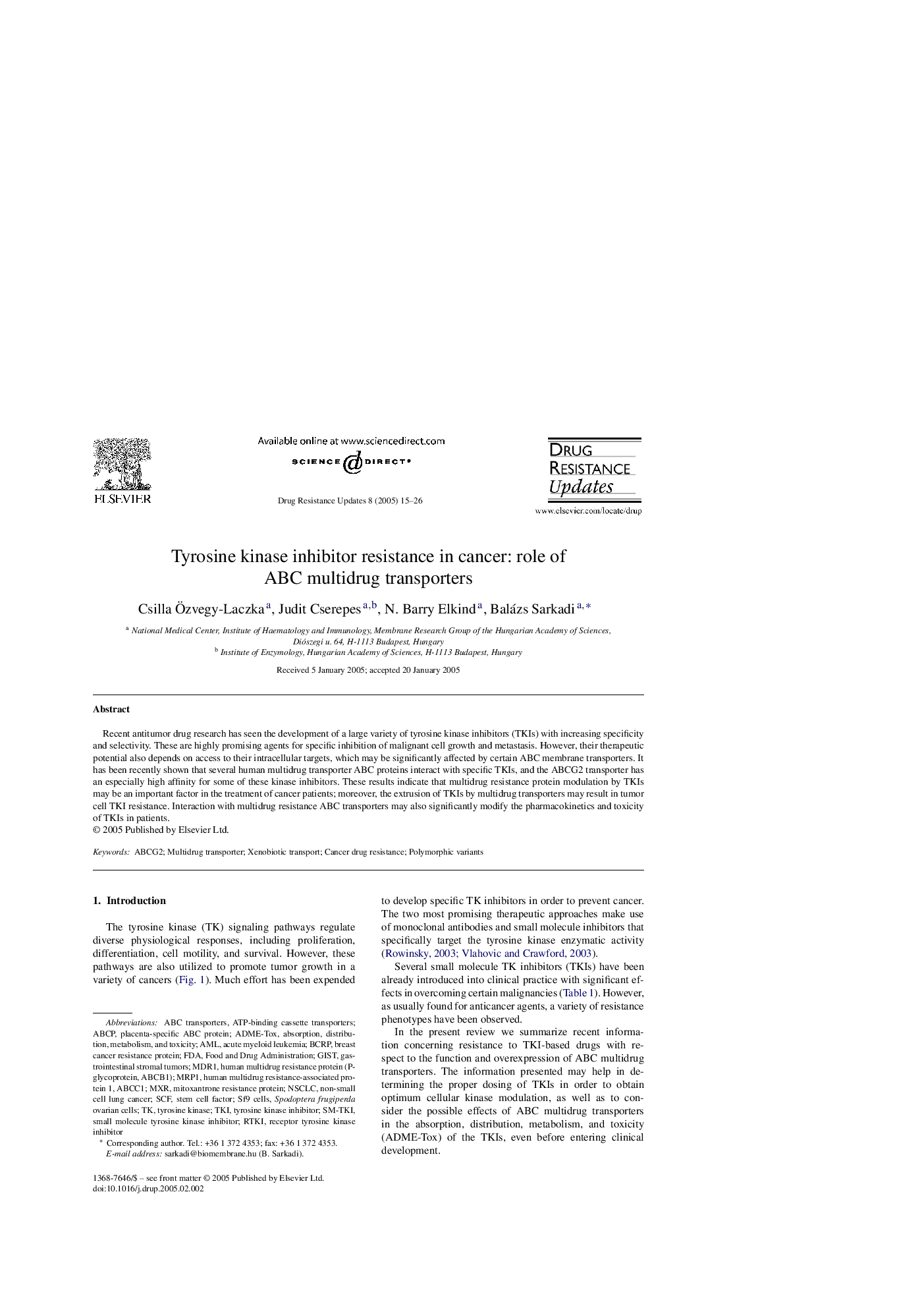| Article ID | Journal | Published Year | Pages | File Type |
|---|---|---|---|---|
| 9905650 | Drug Resistance Updates | 2005 | 12 Pages |
Abstract
Recent antitumor drug research has seen the development of a large variety of tyrosine kinase inhibitors (TKIs) with increasing specificity and selectivity. These are highly promising agents for specific inhibition of malignant cell growth and metastasis. However, their therapeutic potential also depends on access to their intracellular targets, which may be significantly affected by certain ABC membrane transporters. It has been recently shown that several human multidrug transporter ABC proteins interact with specific TKIs, and the ABCG2 transporter has an especially high affinity for some of these kinase inhibitors. These results indicate that multidrug resistance protein modulation by TKIs may be an important factor in the treatment of cancer patients; moreover, the extrusion of TKIs by multidrug transporters may result in tumor cell TKI resistance. Interaction with multidrug resistance ABC transporters may also significantly modify the pharmacokinetics and toxicity of TKIs in patients.
Keywords
MDR1ABCPAMLADME-ToxFDAXenobiotic transportMRP1MXRTKIABCG2BcrpSCFATP-binding cassette transportersPolymorphic variantsgastrointestinal stromal tumorsTyrosine kinaseABC transportersMultidrug transporterFood and Drug AdministrationNSCLCNon-small cell lung cancerSf9 cellsStem Cell Factoracute myeloid leukemiaGistCancer drug resistanceTyrosine kinase inhibitorReceptor tyrosine kinase inhibitorbreast cancer resistance protein
Related Topics
Life Sciences
Biochemistry, Genetics and Molecular Biology
Cancer Research
Authors
Csilla Ãzvegy-Laczka, Judit Cserepes, N. Barry Elkind, Balázs Sarkadi,
